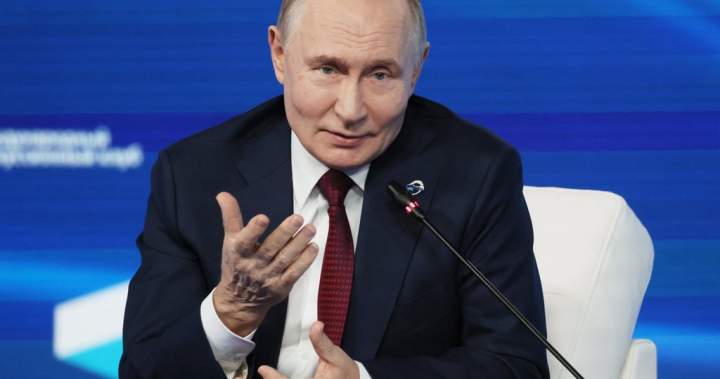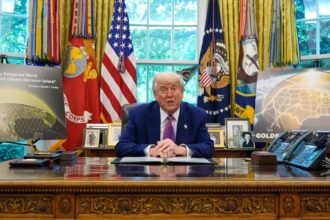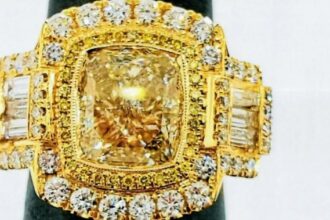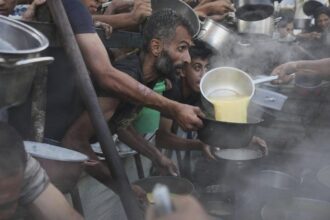In an unexpected diplomatic flare-up, Russian President Vladimir Putin has sharply responded to former U.S. President Donald Trump’s characterization of Russia as a “paper tiger,” marking a significant shift in what had previously appeared to be a cordial relationship between the two leaders.
Speaking at a government meeting in Moscow yesterday, Putin dismissed Trump’s assessment with characteristic bluntness. “Russia has never been and will never be anyone’s ‘paper tiger,'” Putin declared, his tone noticeably firm as he addressed officials. “Our strategic capabilities are well-known to everyone, including our American partners.”
The exchange comes amid heightened scrutiny of Trump’s positions on NATO and Ukraine, particularly following his controversial statements suggesting he would encourage Russia to “do whatever they want” to NATO allies failing to meet defense spending targets. These remarks have sent ripples through global political circles, raising questions about the future of the transatlantic alliance should Trump return to power.
Putin’s response appears carefully calibrated—firm enough to maintain Russia’s posture of strength while avoiding direct antagonism toward Trump, whom the Kremlin has historically viewed as potentially more favorable to Russian interests than other American leaders.
“We have always advocated for respectful dialogue with the United States, but this dialogue must be based on mutual respect and recognition of each other’s security interests,” Putin added, in what analysts describe as a measured warning.
Defense experts note that the timing of this exchange is particularly significant as it coincides with Russia’s ongoing military operations in Ukraine and NATO’s continued support for Kyiv. Dr. Elena Korosteleva from the University of Kent told CO24, “Putin needs to project strength both domestically and internationally. Allowing Trump’s characterization to go unchallenged would undermine the image of power that underpins his leadership.”
The diplomatic tension occurs against a backdrop of evolving global security dynamics. NATO Secretary General Jens Stoltenberg responded to the exchange by reaffirming the alliance’s unified stance. “NATO remains the strongest military alliance in history, and our commitment to collective defense is unwavering regardless of political developments in member states,” Stoltenberg stated at a press briefing in Brussels.
For Canadian foreign policy experts, this exchange highlights the delicate balance Ottawa must maintain in its relations with both Washington and European allies. “Canada’s strategic interests lie in a strong, cohesive NATO,” explained Dr. Roland Paris, professor of international affairs at the University of Ottawa. “Any fracturing of alliance solidarity directly impacts our security framework.”
Financial markets have reacted cautiously to the exchange, with minor fluctuations in defense stocks and marginal movements in the ruble against the dollar. Analysts suggest investors are taking a wait-and-see approach, recognizing that campaign rhetoric often differs significantly from actual policy implementation.
As both the United States presidential election and the Ukraine conflict continue to evolve, this exchange between Putin and Trump raises a profound question: In an era of increasingly personalized international relations, how do the dynamics between individual leaders reshape the institutional frameworks that have governed international security for generations?










